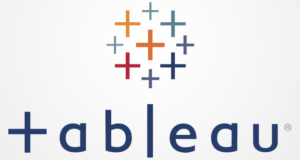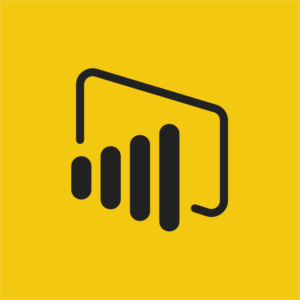If you’re an organization that wishes to leverage from data intelligence, you cannot do without a BI tool. We have compared the two most popular BI tools Microsoft Power BI and Tableau to understand which one is the best. Which is the tool that provides better experience, functionalities, dashboard, and is suitable to the pocket? Let’s take a look.
Future-forward organizations must leverage the big data revolution to encash from it. To do that, they need a BI tool to interpret and examine data, prepare reports, and perform a complete data analysis. The biggest players in the market are Oracle BI, Microsoft Power BI and Tableau. Which is the BI tool that is most suited for your business requirements? What are the parameters that you should consider to compare the BI tools?
Image Source: https://siliconangle.com/files/2013/05/tableau-logo-USE-THIS-ONE.png
Some of the key parameters that you must consider when comparing BI tools are Data Visualization, Analytics, Data Sources, and Pricing.
Data Visualization
The most important feature of a Business Intelligence tool is its ability to transform data into meaningful insights. For the same reason, data visualization is critical as it gives a visual representation of datasets in a wide variety of visualization types and gives exploration options for meaningful insights. Users find that Tableau has an excellent user interface and gives a lot of flexibility in viewing various data analysis reports.
Power BI is not as good as Tableau in terms of presenting in-depth and insightful visualizations. Even the tools that that Tableau offers are more intuitive. The one aspect that Power BI beats Tableau is when it comes to making basic reports. The other good thing about Power BI is that it shares a number of controls of Microsoft Excel since it is built on top of it.
Analytics
Analytics (advanced analytics) has become the basic requirement for any good BI tool. Every BI tool is expected to offer advanced analytical capabilities and both Tableau and Power BI offer just that. Power BI supports R scripting that helps to create forecasting and analytics models and Tableau, on the other hand, supports R scripting and Python (and also supports a number of native tools to provide such operations).
Data Sources
The ability of a BI tool to import and analyze data (in the desired configuration) is the key to decide how efficient the BI tool is. Both Tableau and Power BI are able to support a number of data sources that users are able to import from. These sources include MySQL, HANA, SAP and many others. There are many other data sources and Power BI and Tableau support all of such sources.
Experts however feel that Tableau gives a better support to connect with a separate data warehouse and Power BI, on the other hand, is deeply integrated with Microsoft portfolio, which includes Office 365 suite and Microsoft Azure cloud services.
Pricing
The professional license for Tableau Desktop comes at $70 per user every month (which is billed annually). If you wish to manage Tableau centrally, you’ll have to get an extra $35 license per user for every month for Tableau Server.
On the other hand, Power BI Desktop version is free and Power BI Pro license comes at $9.99 per user for every month. The subscription comes free with the highest tier of Office 365 Enterprise version.
Conclusion
Though data analysts may not consider Power BI to be excellent but it is sufficient for basic reporting, which is the requirement for most organizations. Tableau, as compared to Power BI is better in terms of technicality. In terms of pricing, Power BI is the clear winner. Hence, to use a general purpose BI platform, Power BI is the best option.
Want to deploy and leverage data-driven insights from the most suitable BI tool? Allow us to help you select the perfect BI tool for your business requirements.
About ISHIR:
ISHIR is a Dallas Fort Worth, Texas based AI-Native System Integrator and Digital Product Innovation Studio. ISHIR serves ambitious businesses across Texas through regional teams in Austin, Houston, and San Antonio, supported by an offshore delivery center in New Delhi and Noida, India, along with Global Capability Centers (GCC) across Asia including India (NOIDA), Nepal, Pakistan, Philippines, Sri Lanka, Vietnam, and UAE (Abu Dhabi, Dubai), Eastern Europe including Estonia, Kosovo, Latvia, Lithuania, Montenegro, Romania, and Ukraine, and LATAM including Argentina, Brazil, Chile, Colombia, Costa Rica, Mexico, and Peru.
Get Started
Fill out the form below and we'll get back to you shortly.





